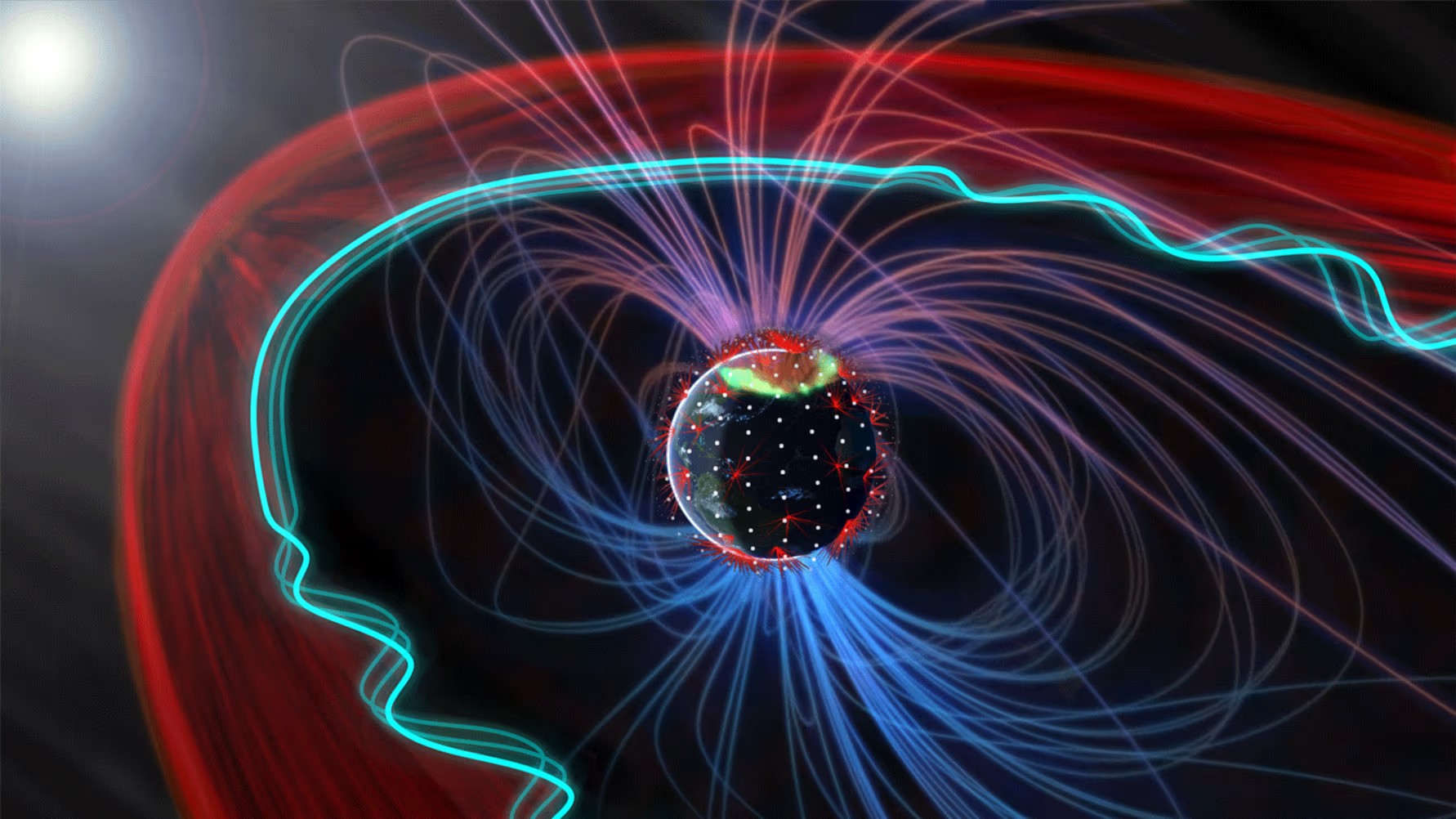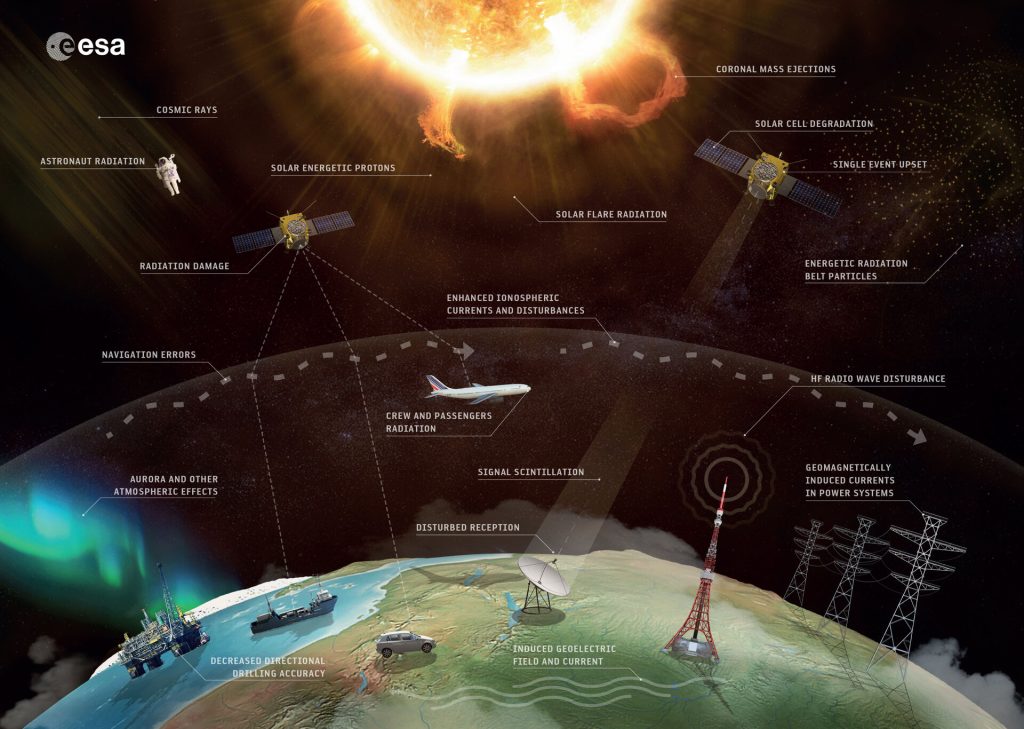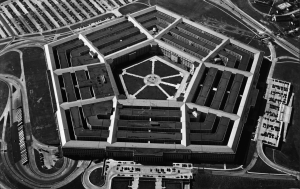Eutelsat OneWeb & Imperial College London To Observe Space Weather
6th Dec 2023
Eutelsat OneWeb has teamed up with Imperial College London to discover ways of protecting integral satellite services from space weather. The partnership will leverage Eutelsat OneWeb’s low Earth orbit (LEO) constellation to detect space weather induced magnetic signals. Due to the nature of these signals and space weather in general, they can disrupt services such as communications, power grids, navigation systems and transportation.
Eutelsat and OneWeb recently merged and combined their mega constellations in Geostationary orbit (GEO) and LEO. To measure the impact of space weather, they will use sensors onboard these satellites and analyse the data. The feat will be performed in collaboration with Imperial College London’s Dr. Martin Archer, who obtained a “UKRI future leaders fellowship” to undertake the monitoring work.
Dr. Archer said in a statement: “This fellowship will revolutionise space weather monitoring by harnessing data from the hundreds of satellites in orbit around our planet, thanks to the constellation launched by Eutelsat OneWeb.”
Monitoring Space Weather To Protect Earth’s In-Space Assets
The world’s first GEO and LEO operators will use their Gen1 satellite constellation in LEO for global space weather monitoring. These satellites are fitted with a magnetometer which instrumentally controls their satellite’s orientation. Currently, space weather patterns are unobserved, Eutelsat OneWeb said, making this mission a first-of-its-kind.
Such sensors may be able to absorb ‘magnetic signals’ emanated from space weather, and provide data for on-ground analysis. As space weather is unpredictable and evolving, these signals will be essential for recognising ‘near-Earth space weather’ patterns and conditions.
Maurizio Vanotti, Eutelsat OneWeb’s VP of New Markets, said: “Space weather is certainly one of these societal challenges, even modest space weather can affect our satellite operations. We look forward to working together to see how our vast data capabilities can help inform our actions in the future.”
Eutelsat OneWeb’s Aim To Improve Space Weather Predictions
Eutelsat OneWeb aims to use the data collected to protect in-space assets that could succumb to space weather’s wrath. Eventually, the outcome could see precautionary measures introduced. “It [could be] possible to prevent interruptions to technology both in space and on the ground,” Eutelsat OneWeb said. As such, this data may equip: “researchers with valuable insight to help improve space weather predictions in the future.” From 2024 to 2028, Dr. Archer will utilise said data to analyse and predict space weather patterns.
How Does Space Weather Affect Satellites?

Space weather, otherwise known as ‘conditions in near-Earth space’, can adversely impact dependable in-space assets. Earth has become heavily reliant on satellites for ubiquitous coverage in communications, navigation, transportation and more. However, space weather can disrupt: “a satellite’s electronics and orbits, disturb communications reception and power grids on Earth”. Therefore, Eutelsat OneWeb said: “Global monitoring of space weather is crucial not only to mitigate its effects in real-time, but to improve understanding of how and why these risks occur.”







Thank you for your comment! It will be visible on the site after moderation.